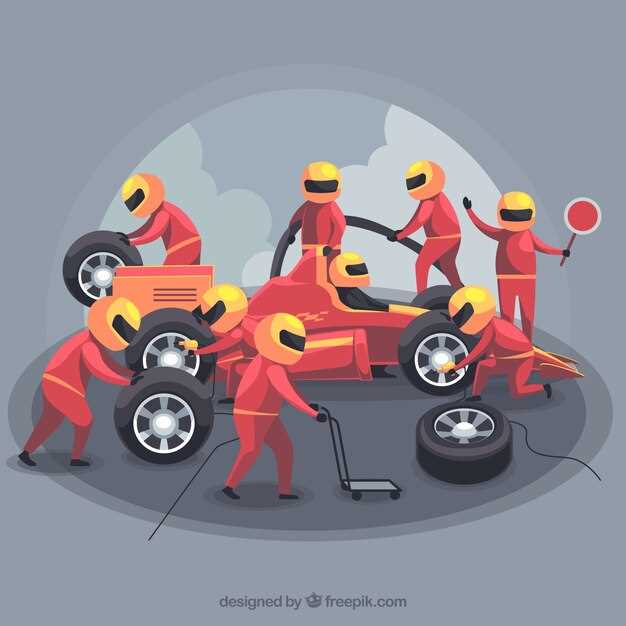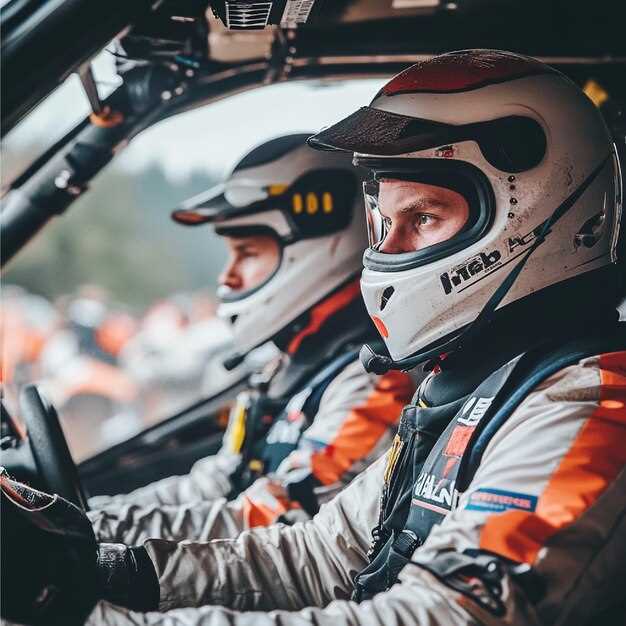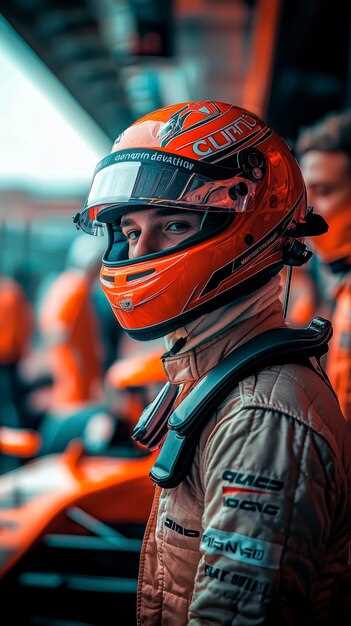Key Drivers on the Volkswagen Motorsport Team

The success of the Volkswagen (VW) Motorsport team can be attributed to several critical factors that optimize performance and enhance competitiveness in the fast-paced world of motorsport. At the core of this achievement is the unwavering commitment of the team, which encompasses not only the drivers but also the engineers, technicians, and support staff who work tirelessly together. This strong team dynamic fosters synergy, allowing for innovative strategies and quick problem-solving on and off the track.
Another vital element is the selection and development of talented VW drivers. The Motorsport team is diligent in identifying and nurturing individuals who not only possess exceptional driving skills but also embody the team’s core values, such as resilience and collaboration. These drivers are not only athletes; they are integral participants in the continuous learning process, providing valuable feedback that shapes car performance and overall strategy throughout each racing season.
Moreover, the robust engineering and technological advancements at VW play a significant role in the team’s triumphs. Continuous investment in research and development ensures that the VW Motorsport team remains at the forefront of automotive innovation, translating to high-performing vehicles that resonate with the demands of competitive racing. This combination of team unity, skilled drivers, and cutting-edge technology ultimately positions the VW Motorsport team for sustained success on the racetrack.
Innovation in Engineering and Technology Deployment
The Volkswagen Motorsport Team consistently showcases cutting-edge innovation in engineering and technology deployment to gain a competitive edge in motorsport. Central to this success is their commitment to developing advanced automotive technologies that enhance vehicle performance, reliability, and safety. Volkswagen has focused on optimizing powertrains and chassis designs, resulting in vehicles that can withstand the rigors of high-stakes competition.
A vital aspect of their strategy involves the integration of hybrid and electric technologies, ensuring that VW remains at the forefront of environmental sustainability while maintaining speed and efficiency. These technologies not only reduce carbon emissions but also allow drivers to harness additional power under specific conditions, offering a significant advantage on the track.
The team’s engineers work closely with drivers to gather real-time feedback, facilitating continuous improvements in vehicle dynamics. This collaboration ensures that engineering innovations align with the practical needs of drivers, enhancing control and performance during races. Volkswagen’s use of advanced simulation tools during the development phase allows for precise adjustments to aerodynamics and weight distribution, fine-tuning the car’s behavior in various racing scenarios.
Furthermore, the implementation of data analytics has transformed how the team operates. By utilizing telemetry systems, VW can monitor vehicle performance metrics in real-time, enabling quick decision-making and strategic adjustments during races. This integration of technology not only enhances race-day strategy but also provides invaluable insights for future vehicle designs.
In conclusion, the Volkswagen Motorsport Team’s emphasis on innovative engineering and technology deployment is a testament to their dedication to excellence in motorsport. By constantly evolving and embracing new technologies, VW ensures that its drivers and team remain competitive in an ever-changing automotive landscape.
Strategic Partnership and Sponsorship Impact

Strategic partnerships and sponsorships play a crucial role in the success of the Volkswagen Motorsport Team. These alliances provide essential financial backing that allows the team to invest in advanced technology, cutting-edge vehicles, and the training of their drivers. The collaboration with renowned brands enhances the team’s visibility and creates a strong platform for promotional activities, ultimately driving fan engagement and loyalty.
By aligning with sponsors who share a commitment to innovation and excellence, Volkswagen Motorsport can leverage shared resources and expertise. This symbiotic relationship not only boosts the team’s performance on the racetrack but also fosters a culture of continuous improvement. The support from partners enables the team to adopt the latest racing technologies, ensuring they remain competitive in a rapidly evolving automotive landscape.
Additionally, sponsorships often extend beyond financial support; they bring in a wealth of marketing opportunities. The joint branding at races and events amplifies exposure for both the team and their sponsors, attracting a broader audience. This visibility is paramount in the highly competitive motorsport arena, where fan engagement can significantly influence public perception and brand loyalty.
Furthermore, strong relationships with partners also facilitate the recruitment of top-tier drivers. Sponsors are keen to associate with successful teams and talented individuals, thereby contributing to the recruitment of elite racing talent. This bolstered lineup of skilled drivers further improves the team’s chances of success in various championships.
In summary, strategic partnerships and sponsorships are integral to the Volkswagen Motorsport Team’s achievements. They provide not only financial support but also enhance marketing potential and driver recruitment, all of which contribute to the overall success of the racing team.
Driver Development Programs and Performance Metrics

Volkswagen (VW) has established a comprehensive driver development program that focuses on enhancing the skills and performance of its motorsport team members. This program is crucial for identifying and nurturing talent, ensuring that the drivers can perform at their best in competitive environments. The structured approach to driver development includes simulation training, physical conditioning, and mental preparation, aimed at optimizing performance on the track.
Each driver within the VW team undergoes a personalized assessment that evaluates their current skill set, strengths, and areas for improvement. This assessment forms the foundation of a tailored training regimen that incorporates advanced driving techniques, race strategy, and vehicle dynamics. By using modern technology, such as simulation software, drivers can practice and refine their skills in a controlled environment, leading to better preparedness for actual race conditions.
Performance metrics play a vital role in evaluating the effectiveness of these development programs. VW utilizes a range of data analytics to measure driver performance during practice sessions and races. Key performance indicators (KPIs) such as lap times, consistency, and feedback from telemetry data are closely monitored to determine the impact of training on drivers’ abilities. Consistent analysis of these metrics allows the team to make informed decisions about driver strategies and further development needs.
Moreover, ongoing feedback mechanisms facilitate communication between drivers and engineers. This collaboration ensures that any technical challenges faced by drivers can be addressed promptly, enhancing overall team performance. The emphasis on continuous improvement is a cornerstone of VW’s success, ensuring that each driver evolves consistently with the team’s competitive aspirations.
In conclusion, the driver development programs implemented by VW are integral to cultivating a high-performing motorsport team. By focusing on individual driver growth and leveraging performance metrics, VW positions its team for sustained success in the high-stakes environment of motorsport racing.



